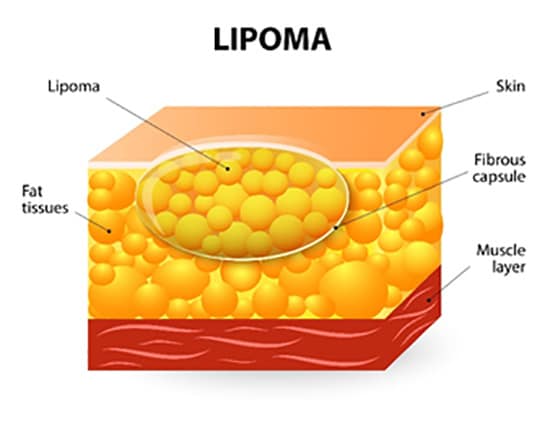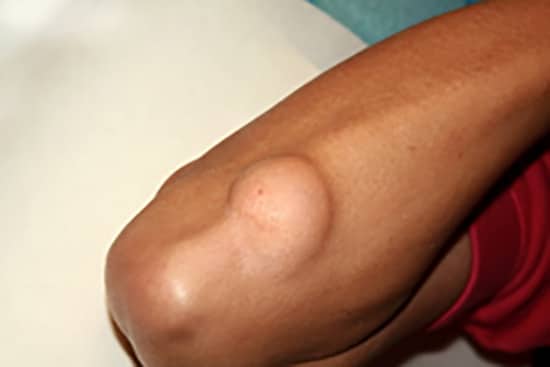Lipomas
What Is a Lipoma?
A lipoma is a non-cancerous (benign) tumour made up of fatty tissue which grows slowly under the skin. Lipomas are soft to the touch and can be moved under the skin. They are relatively common and can affect both men and women, usually in middle age. Some people have multiple lipomas and although they are usually asymptomatic and painless they can be annoying to live with.
It is important to seek a doctor’s diagnosis if a lump or swelling appears on your body or if it grows to be larger than 5cm in order to rule out liposarcoma which is a rare cancerous lump.

For your peace of mind, all specimens from lipoma removal at the Altruderm clinic are sent to the pathology lab to confirm the doctor’s diagnosis. Prior to removal it may be necessary to undergo an ultrasound to provide the doctor with more detailed information about the size and location of the lipoma under the skin. This is something we can arrange on your behalf.
Symptoms of Lipoma
Lipomas can appear anywhere on the body where there is fat, however they are most common on the legs, arms, trunk, shoulders and neck.
They are usually egg-shaped, soft to the touch and mobile under the skin. Depending on which layer of the skin the lipoma grows from it may become more pronounced when the relevant muscle is contracted, e.g. on the arm.
If a lipoma is painful to touch it may be an angiolipoma which is made up of small blood-vessels spread across the fat.
Some people can have lots of painful lipomas on their body as part of a rare condition known as Dercum’s disease.
Tips for Managing Lipomas
Dr McDaid says:
“Lipomas are harmless lumps but it is best to have any lump or swelling checked by a doctor. If you have a lipoma and it is annoying you it should be possible to have it surgically removed in the clinic. During your consultation I will examine the lump and advise of next steps to ensure safety first. In some cases it may be necessary to have an ultrasound prior to removal.”
Frequently Asked Questions
What causes a lipoma?
The cause of lipomas are not well understood, although they do run in families so there may be a genetic element.
Does a lipoma go away on its own?
Lipomas will not go away on their own unfortunately. If you would like your lipoma removed the doctor will discuss the best method of removal which will involve either surgical excision or minimal incision extraction. Both techniques allow a sample of tissue to be sent to the histopathology lab to confirm the doctor’s diagnosis of lipoma.
Where can I find out more information online about lipomas?
The Primary Care Dermatology Society has useful information on their website dedicated to the subject of lipomas with detailed information.
The NHS Choices website also has information about lipomas including when to see a GP.
Find out more about how we remove lipomas including patient results at the Altruderm clinic.

